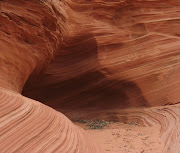
 You. Me. We all are contributing to the speedy demise of each and every Ocean on the planet. There is no sugarcoating this truth: Humans are destroying our Oceans. Currents carry a graveyard filled with cups, six pack holders, water bottles, bags and assorted junk the size of Texas in one ocean that chokes then drowns marine life that ventures into the people made Plastic pond. For more than two years, Dead Zones are an official designation for some areas of the Oceans. Oceans make up 71% of the Earth's water while covering 97% of our space and its in poor health. An international team of 20 scientists contributed to the first attempt to define the scope of the issue and impact oh humans. They are horrified at what the more optimistic data depicts. (NCEAS/Ben Halpern map)
You. Me. We all are contributing to the speedy demise of each and every Ocean on the planet. There is no sugarcoating this truth: Humans are destroying our Oceans. Currents carry a graveyard filled with cups, six pack holders, water bottles, bags and assorted junk the size of Texas in one ocean that chokes then drowns marine life that ventures into the people made Plastic pond. For more than two years, Dead Zones are an official designation for some areas of the Oceans. Oceans make up 71% of the Earth's water while covering 97% of our space and its in poor health. An international team of 20 scientists contributed to the first attempt to define the scope of the issue and impact oh humans. They are horrified at what the more optimistic data depicts. (NCEAS/Ben Halpern map)"For some human activities, we have global data, like commercial fisheries catches," Micheli said. "For others, we developed models to estimate global impacts." The team consulted marine scientists and dug into years of literature
describing human effects on different ecosystems, such as coral reefs, rocky reefs and deep, open waters. They developed a system to quantify how powerful each human influence is, and how fragile each ecosystem is. To map the damage, Micheli and her colleagues divided the ocean into 1-square-kilometer "cells." They determined the impact to each cell by what human activities have touched it, how forceful that touch has been and which ecosystems are there.
Their results suggest that coral reefs are in trouble; nearly half have taken a hard human punch. Other spots of concern include seagrass beds, mangrove forests in estuaries, seamounts, rocky reefs and continental shelves. Soft-bottom shallow and deep ecosystems, as well as the open ocean, fared best, though even they were not pristine in a majority of locations.
The study also shows that human influence runs deepest in the North Sea, the South and East China Seas, the Caribbean Sea, the Mediterranean Sea, the Red Sea, the Persian Gulf, the Bering Sea, along the Eastern Coast of North America
and in much of the western Pacific. The oceans around the Artic and Antarctic poles have been affected very little, but the dwindling polar ice sheets will leave them vulnerable in the future, research suggests. Very limited impacts are also seen around northern Australia, in areas across the western-central Pacific and in small areas scattered along the coasts of South America and Africa. These estimates of human impact are probably optimistic, Micheli said. The study did not account for historical impacts to the oceans whose traces might still linger, and it did not include all possible impacts to marine ecosystems, only the 17 for which data were available or could be modeled.
Population growth, climate change plus a need to use the Oceans logistically leaves Europe, South China Sea, America's east coast, the Caribbean among others facing an immediate crisis. A diet heavy from local fish is posing more risks. Pollution, shipping, dumping, overfishing are big contributors to this sad state of the ocean. The Dead Zone is now believed to be permanent.
Oxygen-deprived water rose up from the deep ocean two years ago, cutting a
deadly swath along the Pacific Northwest coast, say scientists, who watched in awe as fish fled and crabs, sea stars and worms died en masse, creating a rotting carpet on the sea floor.
The "dead zone" was unprecedented say the researchers, who have been combing through the historic records to understand the phenomenon that bathed at least 3,000 square kilometres, from the Canadian border south to the central Oregon coast, in low-oxygen water in 2006.
 Alarm for the high seas is ratcheting up because the empirical evidence in mounting up and now visible in the destruction of ecosystems and habitats that help control the earth's temperature and the ability to feed ourselves or drink fresh water. There is another huge Dead Zone off the coast of Louisiana in the Gulf of Mexico. Some studies say there are only 50 years left for sea fish.
Alarm for the high seas is ratcheting up because the empirical evidence in mounting up and now visible in the destruction of ecosystems and habitats that help control the earth's temperature and the ability to feed ourselves or drink fresh water. There is another huge Dead Zone off the coast of Louisiana in the Gulf of Mexico. Some studies say there are only 50 years left for sea fish.
 We all did it and we all need to fix it with conservation and
We all did it and we all need to fix it with conservation and declaring environmental preservations zones like on land as everybody has a stake in a better oceanic outcome. reef by Scubazoo is an excellent pictorial composition of what we all have to lose by standing still and doing nothing to preserve Earth's oceans. There is an astoundingly graceful and compelling underwater video at the link. (click the pics)
declaring environmental preservations zones like on land as everybody has a stake in a better oceanic outcome. reef by Scubazoo is an excellent pictorial composition of what we all have to lose by standing still and doing nothing to preserve Earth's oceans. There is an astoundingly graceful and compelling underwater video at the link. (click the pics)









No comments:
Post a Comment